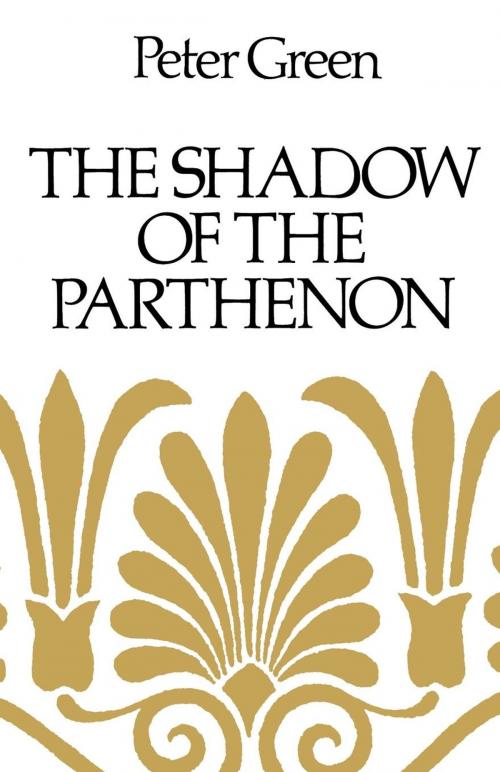The Shadow of the Parthenon
Studies in Ancient History and Literature
Fiction & Literature, Literary Theory & Criticism, Ancient & Classical, Nonfiction, History, Ancient History| Author: | Peter Green | ISBN: | 9780520934719 |
| Publisher: | University of California Press | Publication: | December 1, 2008 |
| Imprint: | University of California Press | Language: | English |
| Author: | Peter Green |
| ISBN: | 9780520934719 |
| Publisher: | University of California Press |
| Publication: | December 1, 2008 |
| Imprint: | University of California Press |
| Language: | English |
A lively combination of scholarship and unorthodoxy makes these studies in ancient history and literature unusually rewarding. Few of the objects of conventional admiration gain much support from Peter Green (Pericles and the "democracy" of fifth-century Athens are treated to a very cool scrutiny) but he has a warm regard for the real virtues of antiquity and for those who spoke with "an individual voice."
The studies cover both history and literature, Greece and Rome. They range from the real nature of Athenian society to poets as diverse as Sappho and Juvenal, and all of them, without laboring any parallels, make the ancient world immediately relevant to our own. (There is, for example, a very perceptive essay on how classical history often becomes a vehicle for the historian's own political beliefs and fantasies of power.)
The student of classical history will find plenty in this book to enrich his own studies. The general reader will enjoy the vision of a classical world which differs radically from what he probably expects.
A lively combination of scholarship and unorthodoxy makes these studies in ancient history and literature unusually rewarding. Few of the objects of conventional admiration gain much support from Peter Green (Pericles and the "democracy" of fifth-century Athens are treated to a very cool scrutiny) but he has a warm regard for the real virtues of antiquity and for those who spoke with "an individual voice."
The studies cover both history and literature, Greece and Rome. They range from the real nature of Athenian society to poets as diverse as Sappho and Juvenal, and all of them, without laboring any parallels, make the ancient world immediately relevant to our own. (There is, for example, a very perceptive essay on how classical history often becomes a vehicle for the historian's own political beliefs and fantasies of power.)
The student of classical history will find plenty in this book to enrich his own studies. The general reader will enjoy the vision of a classical world which differs radically from what he probably expects.















